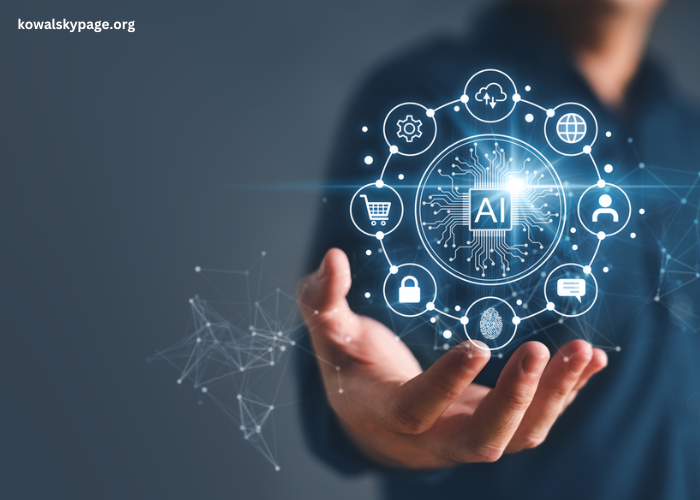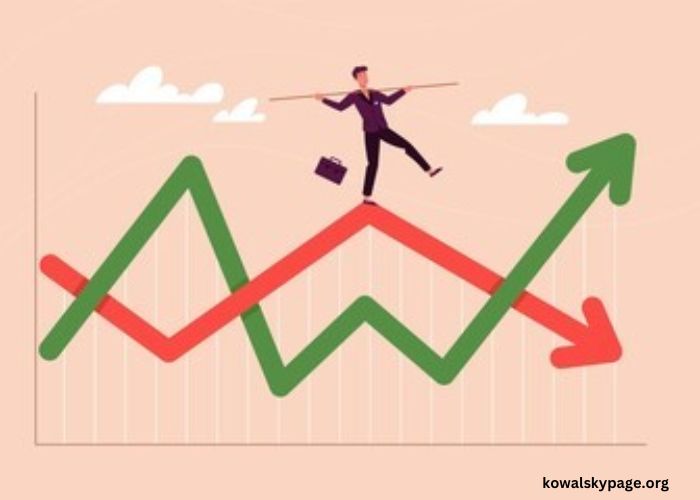Artificial Intelligence (AI) has moved from a speculative concept in science fiction to a transformative force reshaping industries across the globe. In recent years, AI technologies have seen incredible advancements in areas like machine learning, natural language processing, robotics, and computer vision, leading to revolutionary changes in how businesses operate. The future of AI promises even greater opportunities for innovation, efficiency, and societal impact. From healthcare and finance to retail and entertainment, AI is poised to redefine the global economic landscape.
AI in Healthcare: Revolutionizing Patient Care
The healthcare industry stands at the forefront of AI-driven transformation. AI’s potential in healthcare is vast, ranging from improved diagnostics and personalized treatment plans to streamlining administrative tasks and enhancing drug discovery processes.
- Enhanced Diagnostics: AI algorithms can process medical images, such as X-rays and MRIs, with remarkable accuracy. AI-powered tools are already being used to identify conditions like cancer, cardiovascular diseases, and neurological disorders earlier than traditional methods. As these technologies continue to evolve, they promise to drastically reduce diagnostic errors and improve patient outcomes.
- Personalized Medicine: AI can analyze large datasets, such as genetic information and patient histories, to identify patterns that might not be immediately apparent to human doctors. This enables the development of highly personalized treatment plans that consider individual genetic makeup, lifestyle, and other factors, leading to more effective and targeted therapies.
- Drug Discovery: AI is speeding up the traditionally time-consuming drug development process. By simulating molecular interactions and predicting how different compounds may react in the human body, AI can help scientists identify potential drug candidates more quickly and accurately, accelerating the time it takes to bring life-saving medications to market.
- Operational Efficiency: AI is also streamlining administrative tasks, from appointment scheduling to billing. By automating these processes, healthcare providers can save time and resources, ultimately providing better service to patients.
AI in Finance: Driving Innovation and Security
In the financial sector, AI is transforming everything from customer service to risk management and fraud detection. With its ability to analyze massive amounts of data in real-time, AI is becoming an essential tool for financial institutions looking to stay competitive and secure.
- Fraud Detection: AI systems can monitor transactions for unusual activity, identifying potential fraud before it occurs. Machine learning algorithms continuously adapt to new threats, enabling financial institutions to stay one step ahead of cybercriminals.
- Algorithmic Trading: AI-driven trading algorithms are already outperforming human traders by analyzing market conditions in real-time and executing trades at lightning speeds. These systems can process data far more efficiently than any human, leading to more accurate predictions and better returns for investors.
- Customer Service: Chatbots and AI-powered assistants are revolutionizing the way financial institutions interact with customers. These tools can answer common queries, provide personalized financial advice, and assist with account management, all while reducing the need for human intervention.
- Credit Scoring and Risk Management: AI’s ability to process vast amounts of data allows it to assess credit risk more accurately than traditional methods. By analyzing factors like payment histories, transaction patterns, and even social behavior, AI can help lenders make more informed decisions about loan approvals and interest rates.
AI in Retail: Enhancing Customer Experience and Operational Efficiency
In retail, AI is being harnessed to improve both the customer experience and supply chain efficiency. From personalized shopping experiences to predictive inventory management, AI is helping retailers meet consumer demands more effectively.
- Personalized Shopping: Retailers are using AI to analyze customer preferences and browsing histories to offer personalized recommendations. Whether it’s an online store suggesting a new product or a physical store offering tailored promotions, AI is making shopping more relevant and enjoyable for consumers.
- Smart Inventory Management: AI-powered systems are helping retailers optimize their inventory by predicting demand, identifying trends, and reducing waste. By analyzing data from various sources, including sales trends, weather patterns, and even social media sentiment, AI can help businesses ensure they have the right products in stock at the right time.
- Customer Service: AI chatbots and virtual assistants are improving customer service by providing instant responses to inquiries, processing returns, and even handling product recommendations. This reduces the strain on human customer service agents and offers faster, more efficient service to customers.
- Visual Search: AI-powered visual search tools allow customers to search for products by simply uploading images. Retailers are increasingly integrating this technology into their platforms, making it easier for consumers to find exactly what they’re looking for with minimal effort.
AI in Manufacturing: Boosting Efficiency and Innovation
The manufacturing industry is one of the primary beneficiaries of AI-driven advancements, particularly in the areas of automation, predictive maintenance, and production optimization. AI is helping manufacturers increase productivity, reduce costs, and improve safety standards.
- Automation: Robots and AI-powered machines are already performing a range of tasks in manufacturing, from assembly lines to quality control. By automating repetitive and dangerous tasks, AI not only boosts efficiency but also reduces the risk of workplace injuries.
- Predictive Maintenance: AI algorithms can analyze data from sensors embedded in machinery to predict when a machine is likely to fail. This allows manufacturers to perform maintenance proactively, avoiding costly downtime and extending the life of expensive equipment.
- Supply Chain Optimization: AI systems can optimize supply chains by analyzing data related to shipping routes, inventory levels, and supplier performance. This helps manufacturers reduce lead times, cut costs, and improve overall supply chain resilience.
- Product Design and Innovation: AI is also aiding in the design of new products. Using generative design algorithms, AI can propose optimized solutions for product development based on factors like material properties, cost, and manufacturing constraints. This enables faster prototyping and innovative designs that may not have been possible through traditional methods.
AI in Entertainment and Media: Redefining Creativity and Consumer Engagement
AI’s influence is also being felt in the entertainment industry, where it is reshaping the way content is created, distributed, and consumed. From content recommendations to virtual actors, AI is enabling entirely new forms of creativity.
- Personalized Content Recommendations: Streaming platforms like Netflix and Spotify use AI to recommend content based on user preferences, viewing habits, and listening history. By analyzing vast amounts of data, AI is able to suggest content that aligns with individual tastes, making it easier for users to discover new music, movies, and TV shows.
- Virtual and Augmented Reality: AI is powering immersive experiences in virtual and augmented reality, allowing users to interact with digital environments in more intuitive ways. These technologies are being used in gaming, education, and even virtual tourism, offering new forms of entertainment and engagement.
- AI-Generated Content: AI is also being used to generate music, art, and even writing. These AI tools can create original compositions, artwork, and stories, challenging traditional notions of creativity and artistry.
- Film Production: AI tools are helping filmmakers with everything from scriptwriting to post-production. By analyzing existing films, AI can suggest improvements to narratives, visual effects, and editing, making the filmmaking process more efficient and accessible.
The Road Ahead: Challenges and Ethical Considerations
While the future of AI holds immense promise, it also presents challenges. Issues such as data privacy, bias in algorithms, and the potential for job displacement must be addressed as AI continues to evolve. Striking the right balance between innovation and ethical responsibility will be crucial to ensuring that AI serves the greater good.
Data Privacy and Security
As AI systems rely on large amounts of data to function, concerns around data privacy and security have become increasingly important. Ensuring that AI technologies comply with privacy regulations and do not misuse sensitive personal data will be vital in maintaining public trust.
Algorithmic Bias
AI algorithms are only as good as the data they are trained on. If the data used to train an AI system is biased, the resulting decisions can reinforce and perpetuate discrimination. Developers must work to ensure that AI systems are fair, transparent, and free from bias.
Job Displacement
AI has the potential to automate many jobs, raising concerns about job displacement, particularly in industries like manufacturing and customer service. However, there is also the potential for AI to create new job opportunities, particularly in fields related to data science, AI development, and robotics. It will be important for governments and organizations to invest in retraining programs to help workers adapt to the changing landscape.
Conclusion
The future of AI holds immense potential to transform industries worldwide. As AI continues to evolve, its applications will only grow more diverse and impactful, driving innovation, improving efficiencies, and reshaping the way we work, live, and interact. However, realizing the full potential of AI will require collaboration between businesses, governments, and society at large to navigate the challenges and ensure that the benefits of AI are widely distributed. If done correctly, AI could become one of the most powerful tools for progress in the 21st century.





